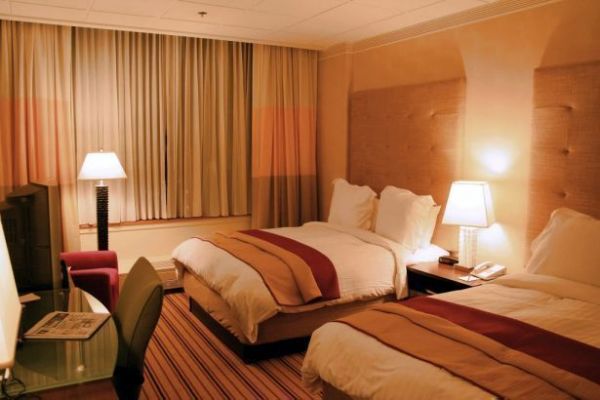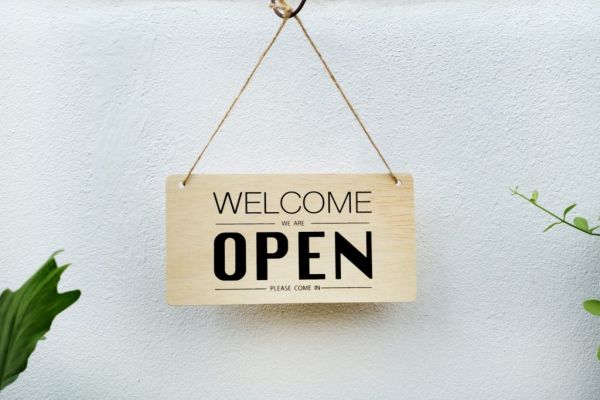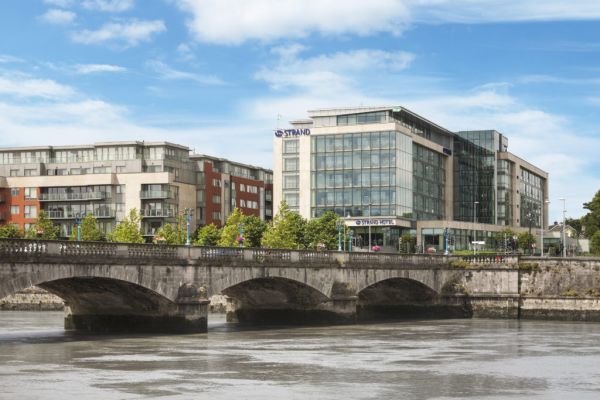Irish hotel revenue has suffered a €5.3 billion hit due to COVID-19, according to the Irish Hotels Federation (IHF).
IHF Statement
The IHF stated, "Irish hotels have faced another exceptionally challenging year due to COVID, with average national room occupancy levels for 2021 standing at 22% year to date, according to the latest industry research from the Irish Hotels Federation (IHF). With the summer over, the sector is entering an uncertain nine months as booking levels fall sharply in the absence of overseas visitors, meetings and events which would normally sustain the sector during the off-peak season.
"IHF chief executive Tim Fenn is urging the government to give a firm commitment to continue business and employment supports until international tourism recovery begins in earnest in summer 2022."
IHF Chief Executive Statement
Fenn stated, "Government supports have been a vital lifeline for tourism businesses, including hotels and guesthouses across the country - many of these businesses would not have survived without the emergency measures put in place throughout this crisis. We now have a long road to recovery ahead of us, and this will require further targeted assistance for tourism and hospitality and the almost 270,000 livelihoods supported by tourism before COVID - one in ten of all Irish jobs."
Government Measures South And Poor Business
The IHF continued, "Government measures sought by the IHF include the extension of the current EWSS [Employment Wage Subsidy Scheme] employment supports until June 2022 to help businesses retain and develop their teams over the coming months; the retention of the 9% tourism VAT rate until after 2025 to allow Irish tourism to compete internationally; and the extension of the commercial rates waiver until June 2022 when the summer seasons begins. Substantial additional funding is also required for international marketing and the restoration of air connectivity with overseas markets to 2019 levels.
"Mr. Fenn notes that while the domestic tourism market performed well over the summer months, with average room occupancy of 59%, business has been exceptionally poor year-to-date with occupancy levels averaging 22% for the first eight months due to the sector being shut until June. The sector is still subject to a delay in full lifting of restrictions on hospitality and indoor events until 22nd October as well as significant uncertainty around international travel, including travel advice from the US Government against travel to Ireland which is impacting on forward bookings.
"Under the most optimistic scenario for the remainder of 2021, average occupancy is projected to reach 32% for year as whole - a significant collapse in activity compared with 2019, when room occupancy was 73% and is only a modest increase on the all-time historic low of 30% reached in 2020."
Additional IHF Chief Executive Statement
Fenn added, "The economic and financial impact of COVID has been devastating for our sector and wider tourism industry, directly impacting on the livelihoods of tens of thousands of people. Hotels and guesthouses will have seen a combined €5.3 billion drop in revenues across 2020 and 2021 as a direct result of this crisis with overall revenues dropping 68% in 2020 and 55% this year. In real terms that's over 19 million room nights lost, billions wiped out in food and beverage sales, and countless missed opportunities for hotels reliant on entertainment, business meetings and events - as well the enormous impact on the many thousands of suppliers to our sector.
"It is critical that the government provides continued supports for our sector so that businesses have a fighting chance of getting back on their feet over the coming years. As Ireland's largest indigenous employer, tourism and hospitality has been hardest hit by COVID restrictions.
"Prior to COVID, our tourism businesses supported 270,000 livelihoods. These jobs matter - not only to the people working within the industry but also to the wider economy, especially the many parts of regional Ireland where tourism is the only show in town. A failure to support the tourism and hospitality now will have ramifications for the future of Ireland’s tourism offering and for the economy."
Research Information
The IHF added, "The research was carried out 1st-6th September and results are based on the response from 331 properties. These account for a combined stock of 34,300 guestrooms spread throughout the entire country."
Occupancy Figures
The IHF also released the following occupancy figures:
Occupancy Results Year to Date (January-August 2021)*
- National room occupancy: 22%
- Dublin city and county: 14%
- Other Cities: 24%
- Border region: 27%
- Mid-west: 22%
- Midlands/mid-east: 25%
- South-east: 31%
- South-west: 27%
- West: 27%
Advance Room Bookings for September-December 2021**
- National room occupancy: 25%
- Dublin city and county: 16%
- Other cities: 21%
- Border region: 32%
- Mid-west: 24%
- Midlands/mid east: 29%
- South-east: 37%
- South-west: 28%
- West: 28%
* Figures for January-August 2021 represent actual bookings achieved.
**Figures for September-December 2021 represent room currently booked in advance - these are likely to increase during the remainder of the year, bringing average annual room bookings for the country as a whole to 32% based on projected future booking patterns.
Regions Information
The counties that make up the regions mentioned above are as follows:
- Border region: Donegal, Sligo, Leitrim, Cavan, Monaghan
- Mid-west: Clare, Limerick, Tipperary
- Midlands/mid-east: Kildare, Laois, Longford, Louth, Meath, Offaly, Westmeath, Wicklow
- South-east: Carlow, Kilkenny, Waterford, Wexford
- South-west: Cork, Kerry
- West: Galway, Mayo, Roscommon
© 2021 Hospitality Ireland – your source for the latest industry news. Article by Dave Simpson. Click subscribe to sign up for the Hospitality Ireland print edition.









